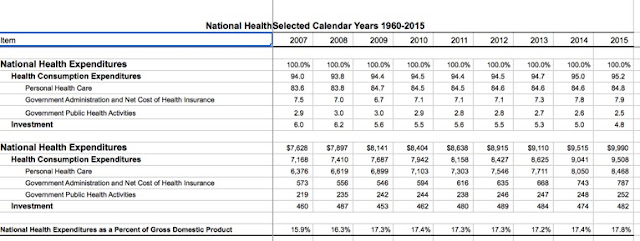3 tips if you cannot pay your taxes
Lots of people have had a rough 2011. In some cases, they
are facing a tax bill that they cannot afford to pay. Here are three tips that
show the best practice for managing this difficult situation.
1. File Your Tax Return On Time
Do not file an extension unless you are going to pay 90% of
the amount of taxes you think you owe. If you fail to file your tax return, the
IRS will assess a penalty for ‘failing to file’. This penalty is separate from
the ‘failure to pay’ penalty, which the IRS will assess for being unable to pay
your taxes, come April 18th. Yes, it's the 18th, because the 15th
fell on a Sunday.
The penalty for failing to file builds up ten times faster
than the penalty for failing to pay. According to the IRS’s ‘Eight Facts on Penalties’,
the ‘failure to file’ penalty is assed at the rate of 5% of the tax owed, per
month, up to 25% of the tax owed. This is in stark contrast with the ‘failure
to pay’ penalty, which is assed at 0.5% of the tax owed per month, up to 25% of
the tax owed.
2. Pay as much as you can.
Send a check with your return, even if it is only $20. The
act of submitting a payment makes a difference. It puts you in the category of
failure to pay tax in full rather than the category of failure to pay tax at
all.
There are lots of people in the same situation as you are.
The government typically works out an installment arrangement. It is best to
request an installment arrangement immediately upon the filing of your timely
tax return along with your good faith payment. If you cannot pay all of your
taxes, file Form 9465 : Installment Agreement Request Form.
Eight Facts on
Penalties (http://www.irs.gov/newsroom/article/0,,id=205326,00.html)
When it comes to filing a tax return – or not filing one -
the IRS can assess a penalty if you fail to file, fail to pay or both. Here are
eight important points the IRS wants you to know about the two different
penalties you may face if you do not file or pay timely.
If you do not file by the deadline, you might face a
failure-to-file penalty. If you do not pay by the due date, you could face a
failure-to-pay penalty.
The failure-to-file penalty is generally more than the
failure-to-pay penalty. So if you cannot pay all the taxes you owe, you should
still file your tax return on time and explore other payment options in the
meantime. The IRS will work with you.
The penalty for filing late is usually 5 percent of the
unpaid taxes for each month or part of a month that a return is late. This
penalty will not exceed 25 percent of your unpaid taxes.
If you file your return more than 60 days after the due date
or extended due date, the minimum penalty is the smaller of $135 or 100 percent
of the unpaid tax.
If you do not pay your taxes by the due date, you will
generally have to pay a failure-to-pay penalty of ½ of 1 percent of your unpaid
taxes for each month or part of a month after the due date that the taxes are
not paid. This penalty can be as much as 25 percent of your unpaid taxes.
If you timely filed a request for an extension of time to
file and you paid at least 90 percent of your actual tax liability by the
original due date, you will not be faced with a failure-to-pay penalty if the
remaining balance is paid by the extended due date.
If both the failure-to-file penalty and the failure-to-pay
penalty apply in any month, the 5 percent failure-to-file penalty is reduced by
the failure-to-pay penalty. However, if you file your return more than 60 days
after the due date or extended due date, the minimum penalty is the smaller of $135
or 100% of the unpaid tax.
You will not have to pay a failure-to-file or
failure-to-pay penalty if you can show that you failed to file or pay on
time because of reasonable cause and not because of willful neglect.
By the way: I appreciate the goals of government: safety for citizens, public education, transportation infrastructure, etc. But I do not think that government is efficient at spending our taxes effectively. Here is an article that discusses that: http://www.victorlund.com/2012/03/forcing-americans-to-pay.html
By the way: I appreciate the goals of government: safety for citizens, public education, transportation infrastructure, etc. But I do not think that government is efficient at spending our taxes effectively. Here is an article that discusses that: http://www.victorlund.com/2012/03/forcing-americans-to-pay.html



There is another category for some to consider. If one experienced an unemployment period in 2011 and/or is currently unemployed the government provides some relief on filing and not incurring a tax penalty. I don't have all the details, but one can google to find out.
ReplyDeleteYou need to file on time no matter what - but you point is well taken - there are lots of programs to manage situations for unemployment and the horizon of other distress circumstances.
ReplyDeleteGreat tips for taking care of all your tax issues. It seems there are a few things to keep in mind if you owe money.
ReplyDelete